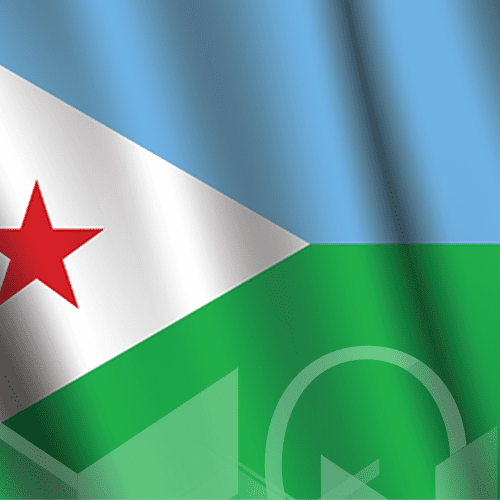
Filter
Sample Reports
Related Links
Djibouti
Djibouti is a small strategically located country on the northeast coast of the Horn of Africa and separates the Red Sea from the Gulf of Aden. It has a land mass of 23,200km², a population of 1.2 million people and a GDP of US$4.6 which is expected to grow by 6% in 2025.
Its currency is the Djiboutian Franc.
Djibouti is mostly barren, with little development in the agricultural and industrial sectors. The country has a harsh climate, a largely unskilled labour force, and limited natural resources. The country's most important economic asset is its strategic location, connecting the Red Sea and the Gulf of Aden. As such, Djibouti's economy is commanded by the services sector, providing services as both a transit port for the region and as an international transshipment and refueling centre. The Port of Djibouti at the southern entrance to the Red Sea, connects Ethiopia and other countries in the Horn of Africa to Europe and Asia
The government deficit was reduced from 3.5 percent of GDP in 2023 to 2.6 percent in 2024 following a brief period of fiscal overruns and deficit monetization, and reserves have begun to recover partially offsetting the decline observed since late 2023, though they remain below the monetary base.
Key risks include regional conflicts potentially increasing migration and affecting social stability amid a constrained fiscal space, and trade policy shifts that could depreciate the dollar and Djibouti franc, enhancing service exports but also raising inflation. Nonetheless, it is worth noting that Djibouti has successfully navigated several shocks over the past few years, including COVID-19, the 2022 Tigray crisis, the Ukraine war, and the 2024 Red Sea maritime disruptions.
The republic ruled by a powerful president, Ismail Omar Guelleh, who has been in office since 1999 and is not subject to term limits. While Djibouti technically has a multiparty political system, the ruling Union for a Presidential Majority (UMP) uses authoritarian means to maintain its dominant position. The opposition’s ability to operate is severely constrained, and journalists and activists who air criticism of Guelleh or the UMP are regularly harassed or arrested.
Sources: Who Owns Whom sector reports, CIA Factbook, African Development Bank, World Bank, Trading Economics, African Statistical Yearbook and IMF. ?>
Company Profile
There is no data available at the moment
Sector Research
There is no data available at the moment


